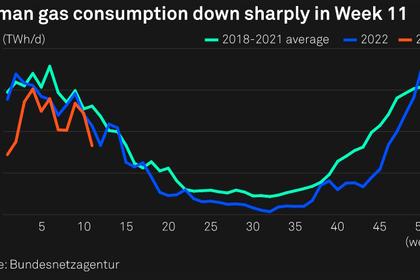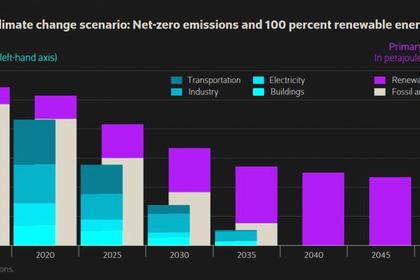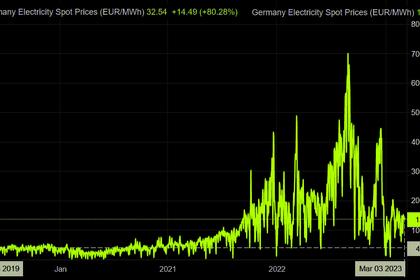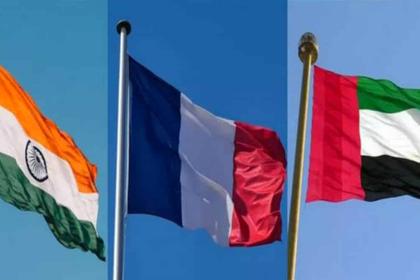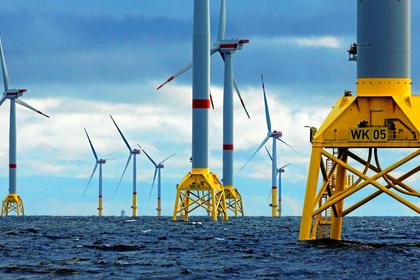
NUCLEAR HYDROGEN FOR EUROPE
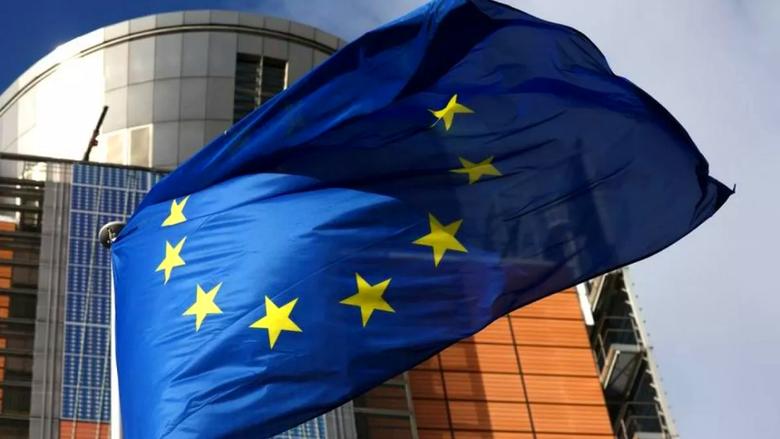
By GERMAN TORO GHIO CEO, Germán & Co
ENERGYCENTRAL - Mar 22, 2023 - Nuclear energy and its potential use for producing low-carbon hydrogen are at the heart of fierce battle between Paris and Berlin over European policy.
Since Germany decided to pull out of nuclear power after the Fukushima disaster in Japan in 2011, Paris and Berlin have been fighting each other over nuclear power.
In recent months, this diplomatic, political and economic dispute has become unusually intense as the battle against global warming and the war in Ukraine leads Europe to move away from fossil fuels.
It is in Brussels that the match is being played. Blackmail, haggling, a struggle for influence and high-dose communication make up the ingredients of this confrontation which has kept specialists on their toes. At least five EU legislative projects are already affected, struggling to deliver progress: Renewable energies, a gas package, air and maritime fuels as well as the hydrogen bank.
France and Germany are also readying their arguments for two other strategic pieces of legislation that the European Commission will soon be presenting. The first relates to the reform of the European electricity market and the second to ways to develop a competitive green industry in the European Union in the face of Chinese and American offensives.
Some of these regulations under development concern the fate of low-carbon hydrogen, i.e. produced with nuclear power to decarbonize industry and long-distance transport alongside renewable hydrogen. Others will be highly significant for the economic viability of the French nuclear sector and the competitiveness of the country.
'Disgusting LNG'
For the time being, the protagonists in this dispute are focusing on a renewable energy directive. Two camps, one led by Germany and the other by France, are fighting it out, each with a blocking minority on a specific point: Should low-carbon hydrogen be taken into account when measuring the efforts of member states to reach the target of 45% of renewables in their energy mix by 2030?
For Berlin and its Spanish, Luxembourgish and Austrian allies, only green hydrogen, produced with wind or photovoltaic electricity, is eligible. This is unacceptable for Paris and its partners, mostly from Eastern and Central Europe. They are banking on nuclear energy to help them comply with the Paris Agreement.
"Banning the use of nuclear power, which is an energy that emits less carbon than photovoltaic or wind power, is absurd," Agnès Pannier-Runacher, the French minister of energy transition, has said on multiple occasions.
"If France relies on its nuclear power, it will not do what is necessary in terms of renewables," the Germans say. "When it comes to importing disgusting LNG from shale gas or running its coal-fired power plants, Germany is less critical," French officials argue.
Paris believes that, with more than 90% of its electricity already decarbonized, it is impossible to focus on renewable energy only without eventually reducing nuclear power production. Germany, on the other hand, whose electricity is almost half fossil fuel-based, has more leeway.
The standoff could take on the same magnitude as the debate on the inclusion of nuclear power in the taxonomy, the labeling of green activities that allows private investment to be directed and which has divided Europeans for many months. Today, "two blocking minorities are facing each other. I have the feeling of being in an arena with two bulls facing each other. For the moment, everything is calm," a source told Le Monde.
On February 28, on the sidelines of a European Council of Ministers in Stockholm, Pannier-Runacher attempted a show of force. She brought together 10 countries – Slovakia, Slovenia, Bulgaria, Croatia, Poland, the Czech Republic, Hungary, Finland, Romania and the Netherlands – with the intention of laying the first foundations of a "nuclear alliance."
They signed a joint statement recognizing the role of nuclear power in securing energy supplies and meeting climate objectives. But Paris did not obtain recognition of the role of nuclear power in European legislation. This was noticed by Germany, which is convinced "that the pro-nuclear coalition around France is fragile. It is playing for time," a European diplomat said.
Empty words
"Both France and Germany are sticking to ideological positions. We have to get out of this, otherwise, it will undermine the Green Deal and the energy transition," said Pascal Canfin, chairman of the European Parliament's Environment Committee and an MEP with the pro-European party Renew Europe.
In Paris, the matter was thought to be settled after a French-German Council of Ministers on January 22. Admittedly, the negotiations had been tough and it was only the day before the meeting at the Elysée Palace between French President Emmanuel Macron and German Chancellor Olaf Scholz that the passage devoted to hydrogen in their joint declaration had been finalized.
But in the end, Macron and Scholz committed to "ensure that renewable and low-carbon hydrogen can be taken into account in the decarbonization objectives set at the European level."
This, it was thought at the Elysée, was the equivalent of German approval for any text dealing with the question of hydrogen. Even if, as a diplomat said, "it is not certain that the Chancellor had informed the Greens, who are very hostile to nuclear power. Robert Habeck, the German minister of economic affairs (Greens), immediately nuanced what was said in the joint declaration."
A few days earlier, in Barcelona on January 19, Macron and Spanish Prime Minister Pedro Sanchez had signed a treaty of friendship that also lifted – Paris believed – the Spanish obstacle on this issue. In truth, the issue of hydrogen was still open when the two leaders met face-to-face at the National Art Museum of Catalonia.
"Sanchez eventually agreed but it is not certain that he understood everything. He got a hard time from his teams and from Berlin," a source said. In return, France agreed to extend to Germany a future hydrogen pipeline that will link Barcelona and Marseille (H2Med), thus responding to a pressing request from Madrid and Berlin.
Very soon, however, France realized its partners did not feel committed in Brussels by the agreements they had signed in Paris and Barcelona. "Perhaps Germany and Spain see no reason to make concessions to France, whose nuclear power guarantees relatively low electricity prices," a source close to Macron said.
Many boundaries have moved in Germany since the start of the war in Ukraine [end of February 2022], especially on defense. Scholz cannot do everything at the same time, especially since his coalition is difficult to govern," a European diplomat added.
In any case, France's response was not long in coming. It rallied its allies and is now threatening to block the H2Med project. On the other side, the blackmail is not well received and positions have become even tenser. As a result, a February 7 negotiation meeting on the renewable energy directive was canceled. Pannier-Runacher's cries of victory on February 13, when the Commission, in a delegated act on green hydrogen, gave France a point, did not help.
Time is running out
EU leadership, which is as divided on nuclear power as the 27 member states are, is not at ease in this matter. "The Commission is tetanized, it has waited a long time for the member states to come to an agreement," Canfin said.
European Commission President Ursula von der Leyen, who has had several exchanges with Macron and Scholz on the subject, is more pragmatic but she is no less German. Above all, she has a political agenda: With the European elections of 2024 looming, Angela Merkel's former minister may want to remain in office. She cannot risk angering Paris, let alone Berlin.
"Von der Leyen is trying to balance the two," a diplomat said. In January, she gave Berlin the upper hand when she signed a memorandum of understanding with Kyiv, intended to increase cooperation between the two parties. The agreement provided for the import of only green Ukrainian hydrogen, even though Ukraine has nuclear power plants. Paris eventually obtained a correction to the text in favor of low-carbon hydrogen.
As this case shows, such memorandums between the EU and third countries also reflect the Franco-German row. "We do not want the EU to engage in an anti-nuclear crusade abroad," stressed a senior French official. On the German side, the government is counting on these agreements to secure supplies of renewable hydrogen.
"After Russian gas, Berlin is creating new dependencies," a pro-nuclear European diplomat said. "Besides, importing hydrogen by boat from Chile or New Zealand [with whom memorandums of understanding are being negotiated] is not necessarily very green."
"Every time the word hydrogen is mentioned somewhere, Paris and Berlin clash," an EU official said. Even when the issue is minor. The latest example came on February 20, when the European foreign ministers were to adopt conclusions on climate diplomacy, a classic exercise that is repeated every year after the United Nations Conference of the Parties. But this year, because it was also about hydrogen, it was not possible.
"Germany must let France develop its low-carbon hydrogen while France must let Germany develop its imported renewable hydrogen model," Canfin said. "To achieve climate neutrality in 2050, we will need nuclear and renewable energy, we must add up the solutions."
"It will take time for de-escalation to take place," a European diplomat said. For the time being, Scholz and Macron have been avoiding frontal exchanges on the subject while, behind the scenes, experts from both sides are looking for an agreement.
But time is running out. The Commission is to present its proposals for reforming the European electricity market and helping the member states develop a competitive green industry, the implications of which for nuclear power will be decisive.
If a French-German compromise on the subject has not emerged by then, discussions between European leaders, who are due to meet in Brussels on March 23-24, are likely to be much heated.
-----
This thought leadership article was originally shared with Energy Central's Generation Professionals Group. The communities are a place where professionals in the power industry can share, learn and connect in a collaborative environment. Join the Generation Professionals Community today and learn from others who work in the industry.
-----
Earlier:
